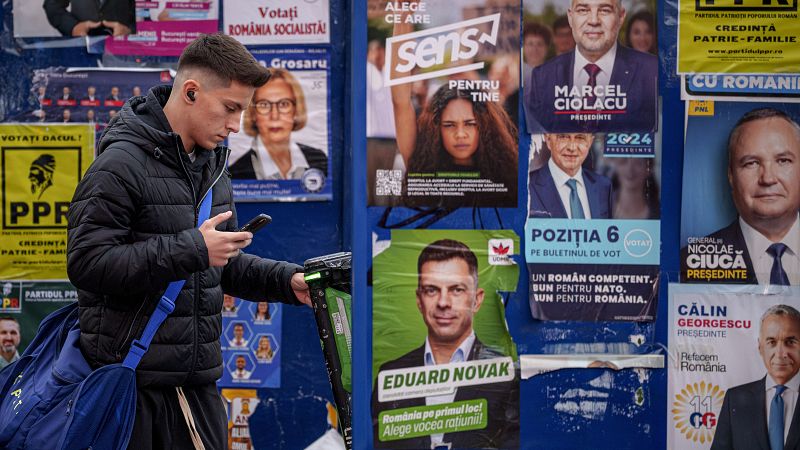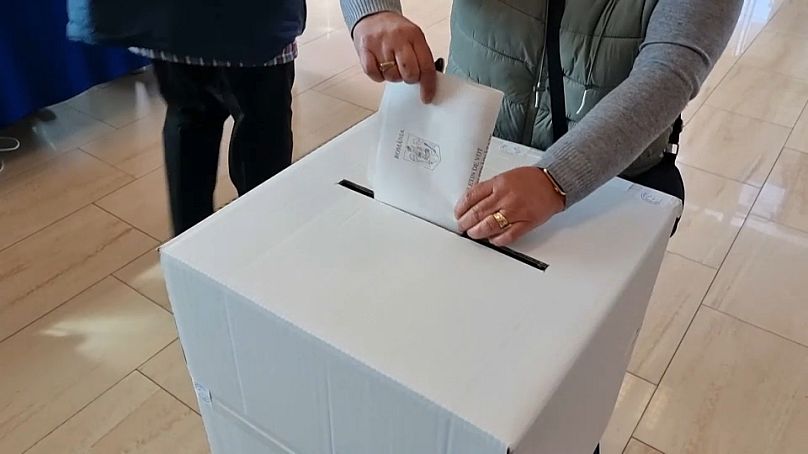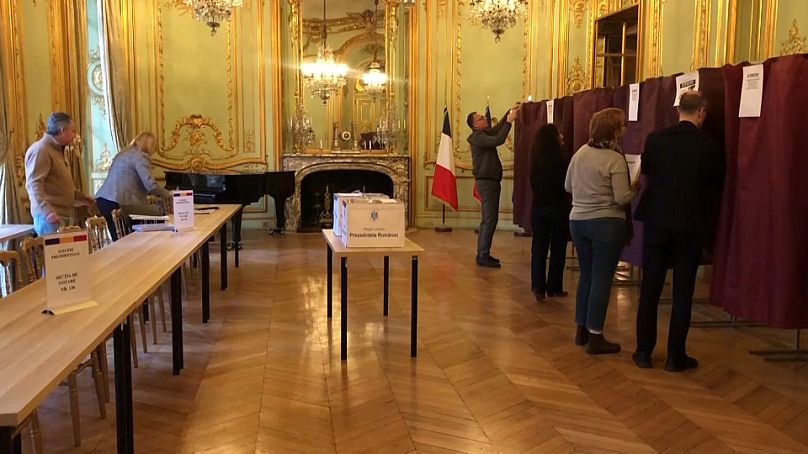Romanians overseas begin casting ballots ahead of Sunday's presidential election

Romanian citizens living overseas have begun casting their ballots ahead of Sunday’s presidential election.
147 polling stations have been set up at locations across Spain, which opened at noon on Friday.
Two are in the Romanian consulate in the capital Madrid, where voters lined up before the building opened.
"I want the new president to be a man of integrity and to be for the people, not for the mafia," said one man waiting in line to vote.
Meanwhile, 67 polling stations will be open across France, including an additional location in the Principality of Monaco.
The Romanian Embassy in France said all information about voting locations and required documents are available on their website and social media channels.
"This is my first time voting abroad for the presidential elections. I voted in the summer for the Euro parliamentary elections," said one Romanian woman in Paris.
"I feel that the whole topic of voting abroad has not been addressed enough in the country. I feel people are not as informed as they should be."
But on Thursday, the President of Romania's Permanent Electoral Authority said there would be a record number of polling stations set up abroad for the presidential election, totalling more than 950.
"In a preliminary discussion with the Ministry of Foreign Affairs, with whom we have a very good collaboration, it was established that at least as many polling stations as there were for the European Parliament elections, over 950, will be organized for the election of the President of Romania," Toni Greblă said.
"I repeat, it is a record number of polling stations that Romania has opened abroad. No other country in the world opens over 900 polling stations abroad."
Greblă also said more than 19,000 polling stations will be set up across the country where Romanians at home can vote.
Sunday's presidential election has 13 candidates vying for the presidency and is widely expected to go to a 8 December runoff.
Leading in the polls is Prime Minister Marcel Ciolacu, who is backed by Romania's largest party, the Social Democratic Party, or PSD.
Ciolacu said he has a "clear plan for a more developed Romania that leaves no one behind, an internal plan based on economic growth on investments and a plan for a more respected and influential Romania abroad."
"Unfortunately, we have political leaders who challenge our presence in the EU and NATO […] I believe that extremists must be politically isolated and not taken into account by any government," the PSD leader added.
But far-right nationalist George Simion is also in with a chance of winning. Recently, he praised Donald Trump and denied allegations that he is a Russian spy.
"I would like for Romanians to feel that the leaders are rule-makers, not simply rule-takers," the Alliance for the Unity of Romanians leader told reporters on Wednesday in Bucharest.
Formed in 2019, the party known by its initials AUR proclaims to stand for "family, nation, faith, and freedom."
The 38-year-old candidate, who is banned from entering Moldova and Ukraine over security concerns, strongly denied "all the allegations regarding any kind of connections with the Russian intelligence officers."
The European Union and NATO member country will also hold parliamentary elections on 1 December that will determine Romania's next government and prime minister.
The presidential role carries a five-year term and has significant decision-making powers in areas such as national security and foreign policy.
Besides Ciolacu and Simion, other key candidates are Elena Lasconi of the Save Romania Union party, former NATO deputy general secretary Mircea Geoana, who is running independently, and Nicolae Ciuca, a former army general and prime minister of the centre-right National Liberal Party, which is currently in a tense coalition with the PSD.
But some voters in Romania feel that none of the candidates in Sunday's race are addressing issues they view as significant.
Today



